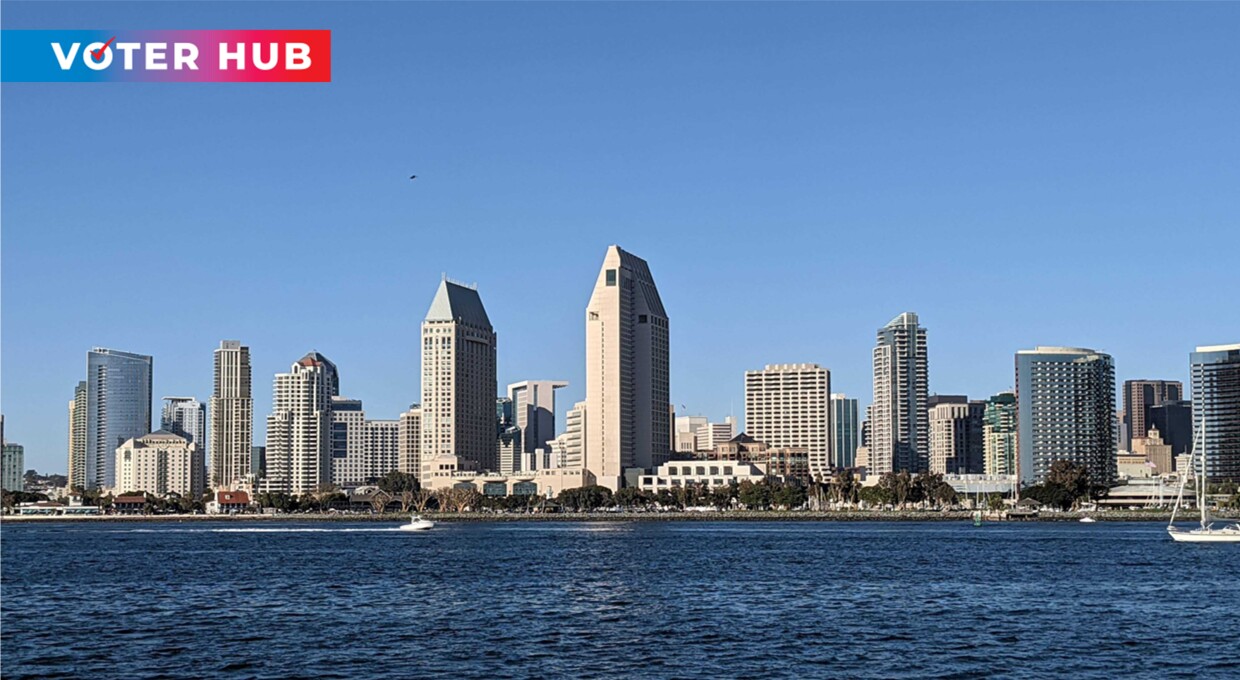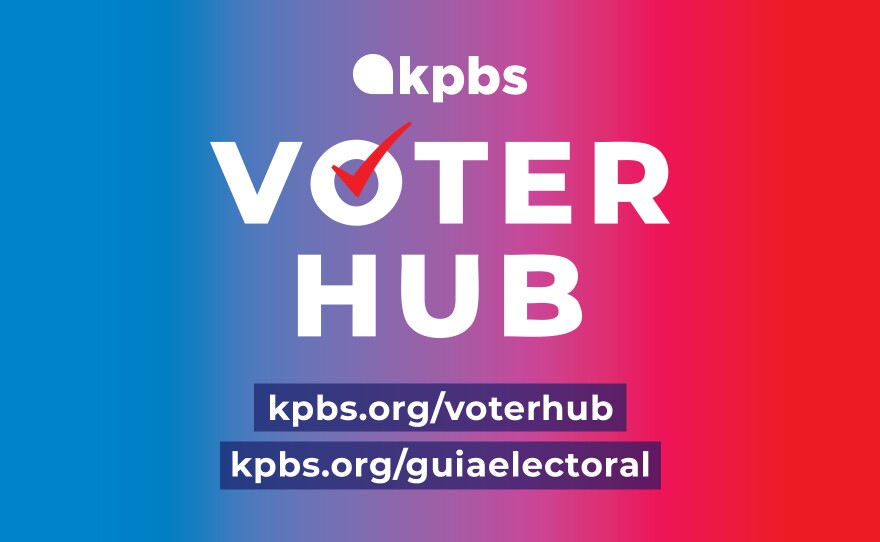What does the San Diego mayor do?
The mayor is by far the most powerful position in San Diego city government. They act as the city's CEO, overseeing nearly all city departments and operations and holding the power to hire and fire top city officials. They also propose the city's annual budget.
Most local lawmaking originates from the mayor's office. The City Council can also pass laws, but because almost all city staffers work under the mayor, the council requires more coordination, effort and resources to pass laws independent of the mayor's office. The mayor can veto laws passed by the council, and the council needs six out of nine votes to override a veto.
The mayor also typically represents the city in regional government bodies such as the San Diego Association of Governments (SANDAG), which plans and builds major transportation infrastructure like freeways and public transit.
What issues is the city of San Diego facing?
Homelessness
San Diego's homelessness crisis reflects failures at multiple levels of government. But the city is closest to the problem, so the mayor often takes most of the blame for when things get worse.
Homelessness policy questions that the mayor has to tackle include: Where should the city place new homeless shelters? How should shelters be operated and funded? And what role should police officers play in managing the homelessness crisis?
Housing
Underlying the homelessness crisis is San Diego's lack of both market rate and affordable housing. That shortage puts upward pressure on housing costs and increases the risk of people being evicted and falling into homelessness.
The mayor plays a central role in deciding where San Diego should zone for higher density to encourage more homebuilding. The mayor can also change policies and workflows so that housing gets permitted faster.
Budget
Whoever wins the mayor's race this year will have some very tough decisions to make on the city's budget. The most recent financial forecast predicts annual deficits of between $115 million and $258 million through mid-2029. That means in order to produce a balanced budget, as required by law, the city would have to either cut services, dip into reserves, raise new revenues or a combination of all those things.
Raising new revenue is difficult because it usually requires voter approval, and San Diego voters have historically been averse to tax increases. The city does have financial reserves, but nowhere near enough to overcome its chronic deficits.
That leaves the mayor with no other option but to cut city services. The most essential services, such as first responders and trash collection, are usually protected. In the past, the city has cut library and rec center hours, funding for arts and culture organizations and tree trimming to close deficits. Cutting services usually comes in the form of laying off city staff, canceling outside contracts or halting plans to fill vacancies.
Infrastructure
Separate from the deficits plaguing the city's operating budget is an even bigger deficit in funding for infrastructure. Over the next five years, San Diego would need to raise an additional $4.8 billion in revenue to fully fund all its infrastructure needs. Those needs include repairs to parks, police and fire stations, city office buildings, storm drains, sidewalks, streetlights, roads and more.
A recent assessment of pavement quality found the city's streets have gotten worse over the past decade. That's despite efforts to increase efficiency and fill more potholes.


Who are the candidates?

Jane Glasson
- Republican
- Special education assistant
Closer look
Despite being the only registered Republican in the mayor's race, Glasson is not endorsed by the San Diego County Republican Party. She hasn't reported any donations and doesn't have a campaign website.

Todd Gloria
- Democrat
- San Diego mayor
Closer look
Gloria has a lot of advantages in the race, including high name recognition, a long list of endorsements and, of course, the incumbency. As of Jan. 20, he had more than $346,000 in his campaign account.
Gloria's approach to housing policy has been to continue the trend of relaxing zoning restrictions to encourage more density in the city's urban neighborhoods. Some of his administration's more ambitious and controversial housing policies have stalled amid opposition from homeowner groups.
On homelessness, Gloria has tried to reduce encampments on sidewalks by opening two campsites on the fringes of Balboa Park. He's also working to open a temporary shelter near the San Diego Airport and got the City Council to approve a ban on camping in public. The ban is only enforceable near schools, parks and other sensitive areas, or when suitable shelter beds are available and a person declines to accept one.

Geneviéve Jones-Wright
- Democrat
- Public interest attorney
Closer look
Jones-Wright rose to prominence when she ran for San Diego County district attorney in 2018. She lost the race by more than 25 percentage points, but has continued her involvement in local politics. Jones-Wright worked as a public defender for 13 years and currently leads a nonprofit, Community Advocates for Just and Moral Governance. As of Jan. 20, she had just over $17,000 in her campaign account.
Before Jones-Wright entered the race, Gloria had already secured endorsements from the San Diego County Democratic Party and its allied institutions. Now, Jones-Wright is positioning herself to the mayor's left.
Jones-Wright opposed the city's camping ban and the creation of the two mass campsites on the outskirts of Balboa Park. She worked on the campaign to pass an ordinance requiring the disclosure of surveillance technologies used by the city. The City Council rolled back the ordinance in January.

Dan Smiechowski
- Holds a real estate license
- Triathlete
Closer look
Smiechowski is a regular public commenter at City Council meetings. His Instagram account includes several pictures of him exercising, sunbathing and dancing in a see-through thong.

Larry Turner
- No party preference
- Police officer
Closer look
This is Larry Turner's first run for political office. He is endorsed by retired NBA player Bill Walton. As of Jan. 20, he had just over $22,100 in his campaign account, $15,000 of which came from a loan he gave his own campaign.
He calls San Diego's struggle with homelessness a "humanitarian crisis." He also supports a proposal to create a massive camp for homeless individuals that would be far removed from the city's neighborhoods. The proposal has no identified location or funding source.
Important
🗳️ Vote-by-mail ballots begin to be sent to all active California registered voters starting Feb 3. The last day to register to vote is Feb. 20. (If voters miss this deadline they can still register and vote in person at any vote center location.) March 5 is the statewide primary election day but many vote centers are open prior to election day. Vote center and drop-off locations close at 8 p.m. on election day.










